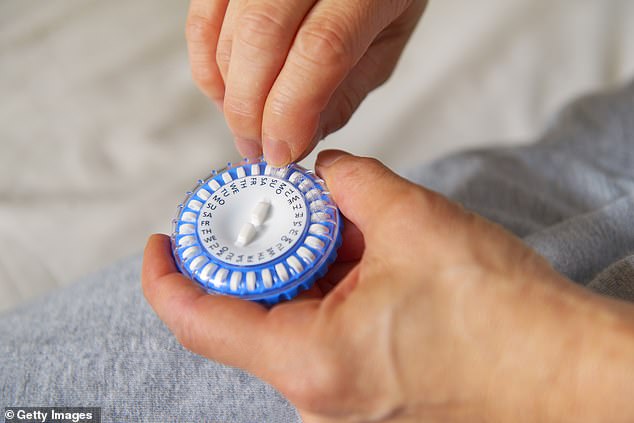Women lose protection against bone fractures when they stop taking HRT and go on to have a temporarily heightened risk of cracks, a study suggests.
Researchers analysed data on 6 million women from around 2,000 GP surgeries in the UK to examine the risk of fractures over a period of up to 25 years.
They compared women who suffered fractures with those who did not and examined the use of different types of hormone replacement therapy (HRT).
It revealed women taking HRT were at reduced risk of fractures while on the drugs but this benefit began to fall once they stopped talking them.
The benefit vanished completely one year after ceasing treatment and the risk then grew to a higher level than those who had not taken HRT at all.
However, the risk later fell again over a period of several years to return former HRT users to a more favourable position than non-users, according to findings published in the medical journal Lancet Healthy Longevity.
Dr Yana Vinogradova, from the University of Nottingham, said: ‘The findings of our study confirmed that women on HRT show a progressively reducing fracture risk compared with women not using HRT.

Research revealed women taking HRT were at reduced risk of fractures while on the drugs but this benefit began to fall once they stopped talking them
‘More importantly, we also observed a clear pattern of risk change after therapy was discontinued.
‘For most women, the bone protective effect of MHT use disappears completely within about one year of treatment being stopped, then their fracture risk rises compared to never users, peaking after about three years, before declining to become again equivalent to never users – about 10 years after discontinuation – and then again continuing to decline relative to never users. So, even after stopping MHT, women should benefit from notably reduced fracture risk in their later decades.”
This observed risk pattern was the same for all menopausal hormonal treatments, but the level of excess risk depended on the treatment type and the length of past HRT use.
During menopause, all women experience a drop in hormone levels, particularly oestrogen.
This can cause a range of distressing mental and physical side effects, including increased age-related bone weakening.
Previous studies have shown taking hormone replacement therapy (HRT) to ease menopause symptoms also decreases the risk of suffering bone fractures while it is being used.
But doctors advise against long-term use of HRT as it is may increase the odds of breast cancer and blood clots.
Detailed information on this aspect from past studies has been unclear – covering only the first couple of years, and also being somewhat conflicting.

Doctors advise against long-term use of HRT as it is may increase the odds of breast cancer and blood clots
Dr Vinogradova added: ‘Our comparative illustration of observed patterns of fracture risk for short and long use can help doctors and patients when discussing HRT treatment options, and to consider how fracture risk may change after stopping HRT use.
‘Anticipating periods of increased risk might prompt doctors to check patients’ bone health at discontinuation, particularly for patients most at risk with other fracture risk factors such as smoking or inactivity.
‘These novel findings may also usefully stimulate further clinical and biological research into these treatments.’
shaun.wooller@dailymail.co.uk
Share or comment on this article:
The bone fracture risk for women who stop taking HRT, revealed by experts